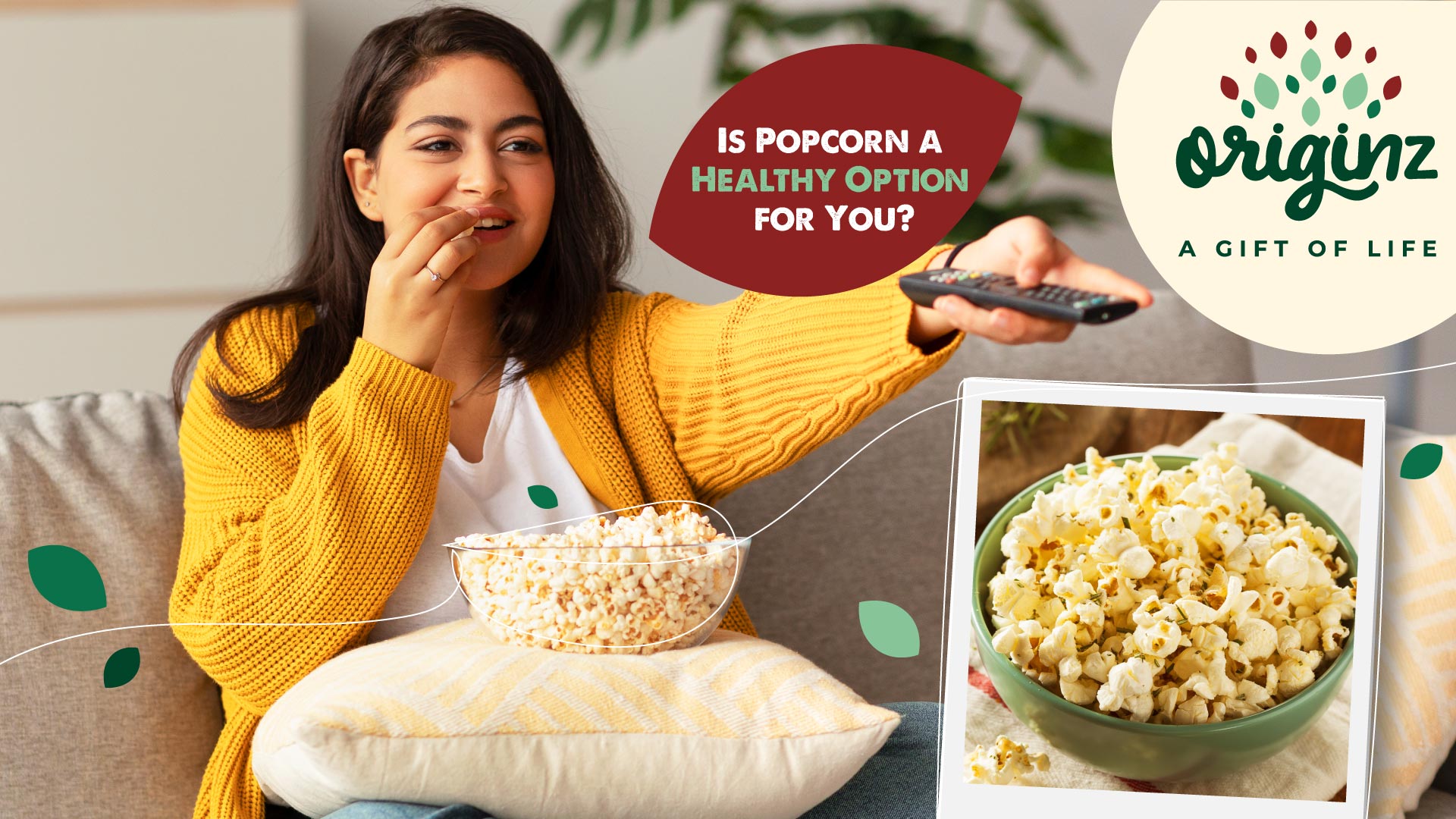
Is Popcorn a Healthy Option for You?
Popcorn is a popular snack enjoyed by people of all ages. It's not only delicious but also packed with numerous health benefits. In this comprehensive guide, we will explore the nutritional value of popcorn, its health benefits, how to make it, and its advantages as a snack for kids. We will also delve into any potential side effects of popcorn. So, let's ask the question kids everywhere want to know – ‘is popcorn healthy for you?’ – and learn more about this fascinating snack.
Nutritional Benefits of Popcorn
Popcorn is a whole grain, which means it is high in dietary fibre. It also contains polyphenols, antioxidants that have been linked to better heart health and a reduced risk of certain types of cancer. A serving of popcorn also contains various vitamins and minerals, including vitamins B1, B3, and B6, iron, magnesium, phosphorus, potassium, and zinc.
Moreover, popcorn is low in calories, with a one-ounce serving containing approximately 106 calories. It's also low in fat and sugar, making it a healthier alternative to many other popular snacks. However, the nutritional benefits of popcorn can vary depending on how it's prepared. For example, adding butter or sugar can significantly increase the calorie, fat, and sugar content.
Health Benefits of Popcorn
Rich in Fibre
One of the main health advantages of popcorn is its high fibre content. Dietary fibre is essential for maintaining a healthy digestive system. It adds bulk to the stool, which can help prevent constipation and promote regular bowel movements. Furthermore, dietary fibre can help prevent spikes in blood sugar levels, which can be particularly beneficial for people with diabetes.
Antioxidant Boost
Popcorn is also a good source of antioxidants, specifically polyphenols. These compounds help protect the body's cells from damage caused by free radicals, unstable molecules that can lead to chronic diseases like heart disease and cancer. Additionally, research has shown that the polyphenols in popcorn can help reduce the risk of heart disease by lowering levels of LDL (‘bad’) cholesterol.
How do you Make Popcorn?
Making popcorn at home is a simple and quick process. All you need is a stovetop, a pot with a lid, and some popcorn kernels. Here's a step-by-step guide:
Heat oil or butter in a pot over medium heat.
Add a few popcorn kernels to the pot and cover it with the lid. Wait for the kernels to pop. This will help you determine when the oil is hot enough.
Once the test kernels have popped, add the rest of the popcorn kernels. Cover the pot again.
Shake the pot occasionally to prevent the popcorn from burning. Continue cooking until the popping slows down to about one pop every few seconds.
Remove the pot from the heat and let it sit for a minute to allow any remaining kernels to pop. Then, carefully remove the lid, allowing the steam to escape away from your face.
Season your popcorn as desired and enjoy!
How Do You Make Popcorn Healthy?
Remember, while popcorn itself is a healthy snack, the nutritional value can be significantly altered by what you add to it. Try to avoid adding too much salt, butter, or sugar to keep your popcorn as healthy as possible, and include in a balanced diet in managed portion sizes. It also helps if the popcorn is organic, since organic foods often have a higher nutrient content than processed foods.
Advantages of Popcorn as a Snack for Kids
Popcorn can be an excellent snack for kids. It's not only tasty but also provides several health benefits. Popcorn is a great source of fibre, vitamins, and minerals, which help with children’s growth and development.
Moreover, popcorn is easy to prepare and can be a fun food for kids to help make. It can also be a great way to introduce children to the concept of healthy eating. By showing them that healthy foods can also be delicious, you can help instil good eating habits that can last a lifetime. Be sure to include them alongside other nutritious kids' snacks, like the snack range from Originz, and a balanced diet of healthy food products.
FAQs
What are the best ways to eat popcorn?
There are many ways to serve popcorn. Some people prefer it sprinkled with salt or sugar, others prefer making homemade caramel sauce and drizzling it over the popcorn. Experiment with what works for you, and don’t be afraid to try new flavours!
Are there any side effects of popcorn?
Popcorn is generally safe to eat. However, popcorn kernels can be a choking hazard for some young children, and some people may be allergic to popcorn. If you are concerned about allergy or choking, consult a licensed medical professional.
To answer the question ‘is popcorn healthy for you?’, popcorn is a nutritious and delicious snack that offers numerous health benefits. It's a great snack option for both adults and children, provided it's prepared and consumed in a healthy way. So, the next time you're looking for a healthy and delicious snack, consider reaching for some popcorn!
Further Read,
Latest Blogs

Maintaining Healthy Habits After Ramadan
Have Ramadan healthy meals after Ramadan and maintain healthy food habits and implement them in your daily lives. Read more about healthy food habits.

Authentic Middle Eastern Iftar Meals to Prepare This Ramadan
Prepare some authentic middle eastern iftar meals this Ramadan. Look for fresh Ramadan food ideas and make your day memorable with these dishes. Check them out.

Ramadan Dishes to Cure Fasting Fatigue
Don’t worry about fasting fatigue anymore as we have listed some best Ramadan dishes and easy iftar meals to support your fasting journey. Check them out.

Eid-al-Fitr Feast: Delicious Recipes to Celebrate the End of Ramadan
Celebrate the end of Ramadan with delicious recipes on the eve of Eid ul Fitr. Read more about the traditional Ramadan recipes and make them easily.